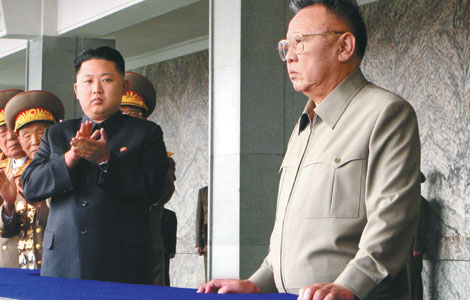Yields on invested social funds likely trailing inflation
Updated: 2011-12-20 09:49
By Gao Changxin (China Daily)
|
|||||||||||
SHANGHAI - When adjusted for inflation, investment yields of the funds China uses to provide various social benefits to the population have probably gone negative, according to a report published on Sunday.
It blamed the poor yields in part on there being very few good places to invest such capital and in part on the funds being poorly managed. It also said concerns have arisen over the funds' abilities to yield good returns over the long term.
The report was published by Wuhan University, the All China Federation of Trade Unions and the People's Publishing House.
In China, little is done to manage either the county's social-insurance fund, which provides coverage for injuries, maternity leave and similar events, and the housing-accumulation fund, which provides loans for home purchases. The money in both comes from employee contributions.
Once the capital is out of their hands, little is done to ensure that it grows in line with inflation. No central government agency is responsible for investing it and few local governments bother to take that step, the report said.
Experts said it is a waste of resources to let the money sit in banks, where interest rates tend to be low. They said that practice will make it difficult to pay out social security benefits in the future, when the average age of the population is bound to rise.
Having few targets for yield returns, many local governments overlook the possibility of putting the money into central-government bonds or other investments offering higher returns than banks, the report said.
By the end of 2010, the amount of money in China's so-called five insurance funds, among them pensions, industrial-injury and maternity funds, reached 2.39 trillion yuan ($377 billion), according to the Ministry of Human Resources and Social Security.
Of that, only 36.9 billion yuan was invested in securities and 36.6 billion yuan was under the management of trustees. Most of the remainder was held in bank accounts, earning interest at a rate that usually didn't keep pace with inflation.
Of the 3.9 trillion yuan in the housing-accumulation fund, for instance, only about 1 trillion yuan is usually loaned out to help with home purchases. The rest is often on deposit, earning a fairly low rate of interest.
"The funds that employees pay into are actually getting smaller in size when one takes inflation into account," said Feng Jin, a professor studying labor economics at Fudan University.
Since more and more people now are paying into the system, the government will be able to keep the funds running in the short term. But if the loss of money in real terms continues, cracks will begin to appear.
"We urgently need special agencies to collectively manage the insurance funds," she said.
To produce higher returns, the report recommends that more of the capital in the funds should be invested in the financial markets and in projects concerned with national economic developments.
Related Stories
Inflation is inevitable 2010-11-25 10:33
Conquer inflation 2010-11-23 08:06
Hyper-inflation unlikely in near future 2003-11-23 08:17
Inflation: Challenging task ahead 2011-08-12 11:25
- Economic growth seen slowing down in 2012
- Social funds yields may be negative
- Capital outflows 'could result in further easing'
- Manufacturing to stay pivotal
- Investment in power projects up 9.5% in Jan-Nov
- MOC to sanction concealing of market disorder
- Hainan opens second duty-free shop
- Steelmakers may still face waning profits








